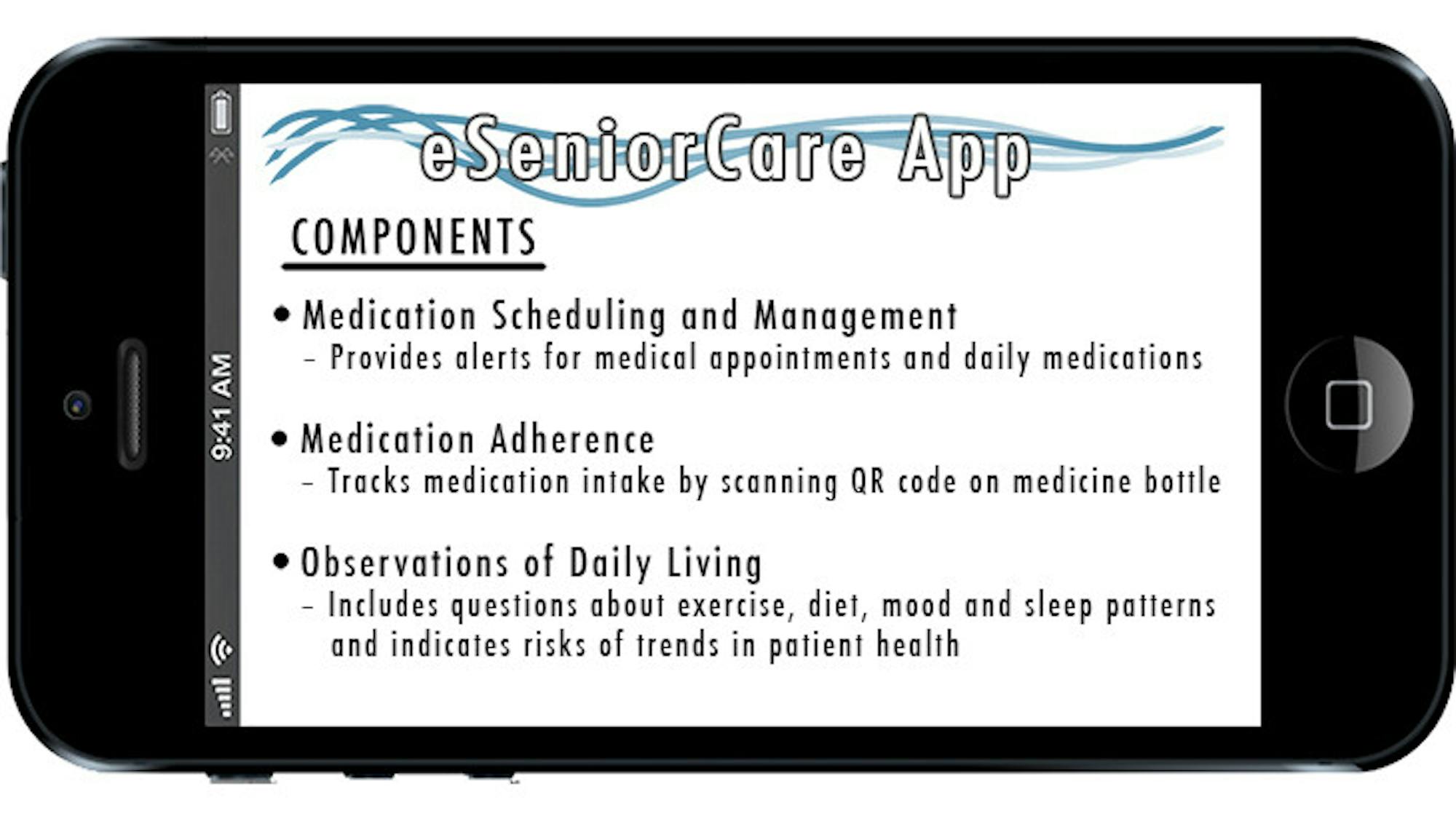The development of a new app at Notre Dame is catching the attention of a specific group: senior citizens.
Researchers at the University’s Interdisciplinary Center for Network Science and Applications (iCeNSA) developed eSeniorCare, a comprehensive app that helps senior citizens manage, organize and provide feedback on their health care.
Nitesh Chawla, director of iCeNSA, said the opportunity for personalized health care and a focus on the mental, physical and the social well-being of senior citizens were sources of inspiration for eSeniorCare.
“Our goal was to build a network for seniors to be more empowered … to set their own goals and track them and truly achieve a personalized journey on health and wellness,” Chawla said.
Chawla said researchers wanted to create an app that made a difference in society by catering to a vulnerable group. He said senior citizens were especially vulnerable, as many are unaccustomed to technology, but the developmental process was not always easy.
“When we first launched the pilot … the seniors did not like it,” Chawla said. “When we first launched it they were actually quite frustrated. We were persistent … and we had multiple focus and feedback sessions with the seniors.”
Chawla said collaboration with senior citizens was key to developing eSeniorCare’s appeal to its specific audience.
“We learned with them on what that entire user experience should be like for them,” Chawla said. “Now they basically are champions of this application.”
eSeniorCare contains features such as setting and tracking personal goals, monitoring sleep, brain games and more, Chawla said. However, its main purpose is to help cultivate an enhanced communication system between senior citizens and their caretakers by providing interactive medical features such as medication scheduling, reminders and history.
“The seniors have a sense of empowerment as a result,” he said. “They feel empowered when they go to a physician and they take their tablets with them.”
Chawla said the development of the app was a two-year process, and what was once a study only requiring 16 participants is now a study with 38 participants. He said eSeniorCare has not only helped the South Bend senior citizen population, but the development has also had scholarly benefits.
“It gives students a translational experience,” he said. “It is an immediate feedback on outcomes [that] actually makes a difference to a person.”
eSeniorCare has created a new support system for senior citizens that allows them to create their own personal social network, he said.
“The individual is able to have more knowledge, more awareness and be able to communicate that with the health providers and give feedback to the health providers as well,” he said.
Chawla said that as the population ages, demands for technological advances like eSeniorCare are necessary to provide mental, medical and social support for senior citizens.
“In 10 years ... there will be an expectation of this kind of technology,” he said. “I believe that we are ahead and constructive in that space.”













